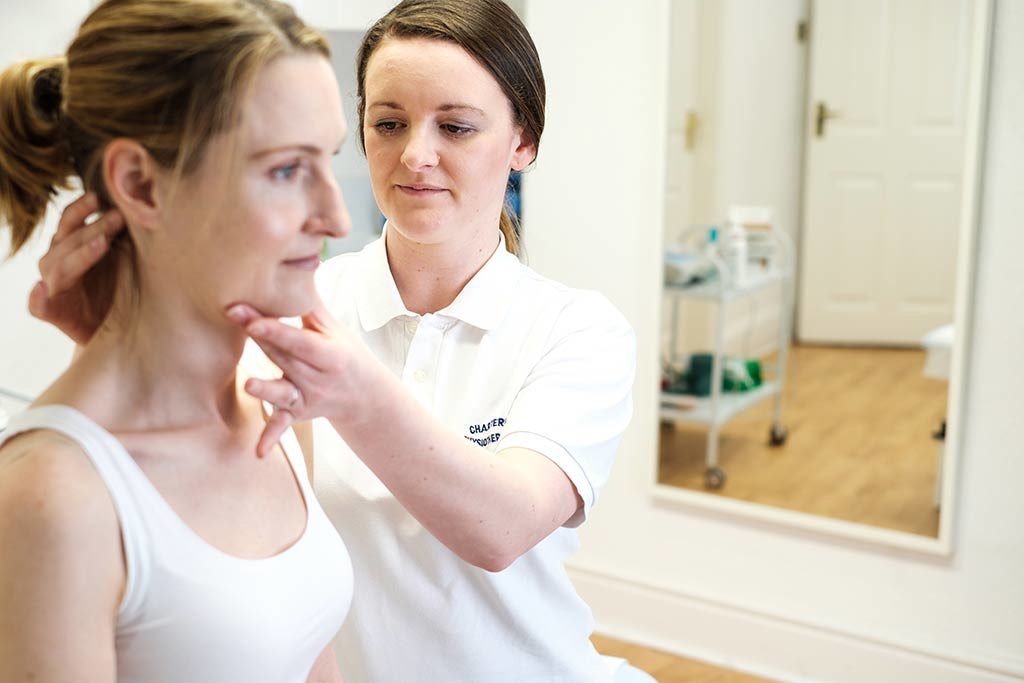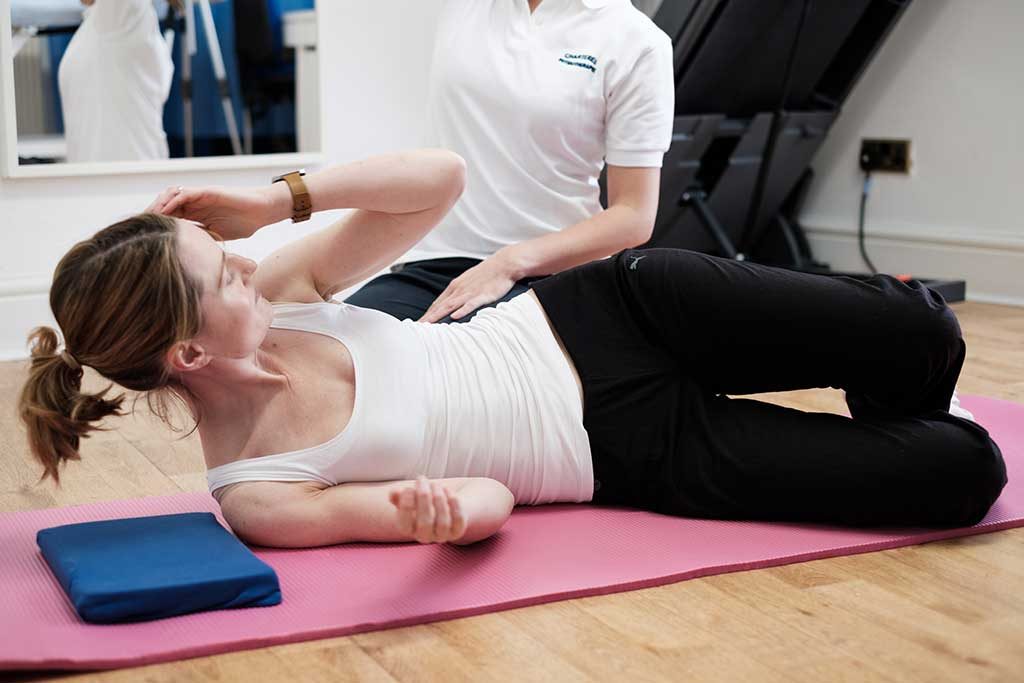Improve posture and prevent back pain with specialist physiotherapist led Pilates.
We all come in different shapes and sizes, and might have inherited varying physical characteristics so how do we know what good posture is? As qualified Chartered Physiotherapists we spend 80% of our working lives assessing, treating and prescribing rehabilitation exercises for varying conditions and we are very rarely aiming to make our patients fit the ideal perfect posture because we all have a different idea of what this is. Instead we look to achieve a balanced posture, with joints being comfortably held in a neutral (i.e.: ‘middle’ position) and muscles working equally with their opposite partner.
When assessing posture, we are initially looking to see how much effort is being used to simply stand up. Some joints might be held slightly bent (typically hips might become tight with too much sitting) whilst other joints are overly locked out straight (knees have a tendency to do this). We also look to see if some muscle groups over working (such as shoulders being kept hunched up with stress) and if other muscles not doing their fair share (weak abdominals might result in an overly arched lower back). We also may assess balance to look at factors such as one side being favoured over the other and if the pelvis can be held level when balancing on one foot. Recognising these problem areas allows us to then prescribe the right exercises to start correcting them.

Assessing the spine is a good place to start because everything is attached ultimately to this structure.
A neutral spine means keeping the gentle forward and backward curves in place whilst we are stood upright. It is important to maintain these curves as they help to dissipate any gravitational stresses that travel up and down our spines with normal day-to-day activity. However over time we may lose these curves: an occupation that involves sitting for prolonged periods may tighten hamstrings, which can tip our pelvis backwards, flattening the lower back curve. On the other hand, abdominals weakened by weight gain or pregnancy might result in an overly exaggerated the lumbar spine’s curve.
Our physiotherapist Pilates instructors gained their qualifications at the Australian Physiotherapist and Pilates Institute. Modified Pilates, as taught by our physiotherapists, starts by teaching you how to recognise how we can hold our spine in a neutral position. We then show you how to recognise the feeling when you switch on the right type of muscles that are required to hold us in place – these are our postural muscles – also commonly known as our ‘core’.
Our body has deep stabilising muscles around most of our joints. The core muscles that stabilise our lower back consist of 4 sets of muscles – transverse abdominis at the front, multifidus in the back, the pelvic floor on the bottom and our breathing muscle, the diaphragm on the top. When these muscles work in unison they gently squeeze around our spine, holding it in place with our pelvis allowing safe and controlled movement in all directions. Latest research has shown that training these muscles can help to reduce back pain.
Everybody has a functioning core or they would not be able to stand or even sit upright! However it is necessary to recognise the sensation of it drawing in, in order to be able to help it get stronger. Otherwise it is likely that other muscles will work too hard in its place and then there is a risk of injury. We realise that we learn in different ways so we use a variety of teaching methods and cues to help you understand what’s working in your body, ranging from demonstration, visual imagery to verbal physical description and hands-on palpation.
During Modified Pilates classes and private one-to-one sessions in the clinic you are then shown a progression of exercises working top to toe, whilst maintaining the core recruitment, making you gradually fitter and stronger.
When the spine and pelvis are held steady, the other power muscles that are attached to them have a strong stable base to work from, making walking, running and all other movements easier, more powerful and efficient. And this is how Pilates helps us to better manage sciatica, back and neck pain as well as other conditions such as arthritis and fibromyalgia.

To book your consultation please complete our online booking form*.
If you would like to know more about how we can help you, please contact us and one of our friendly team will be happy to discuss your needs, without obligation.
* Please note: If your treatment costs are to be paid directly by your health insurance company, we kindly ask that you contact us by phone or email to arrange your appointment.
Please read our cancellation policy.
Here's what our clients say.
At Marple Physiotherapy we pride ourselves on our excellent reputation. We therefore highly value the patient feedback we receive as we continually strive to improve our services.
© 2025 Marple Physio. All rights reserved.